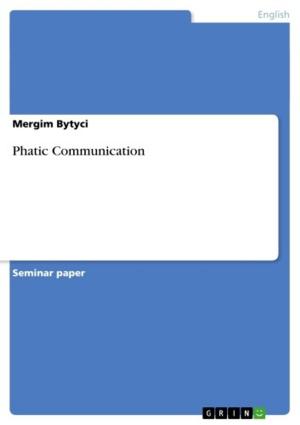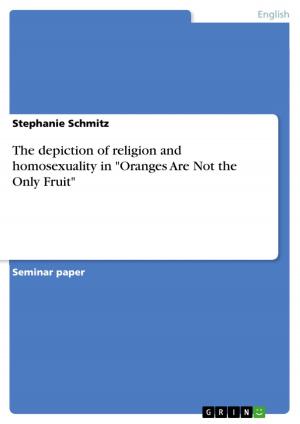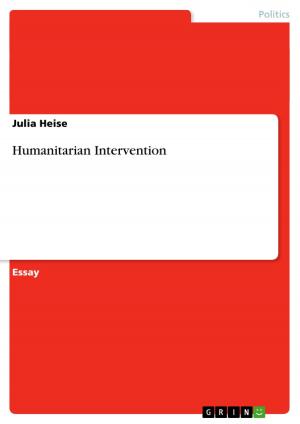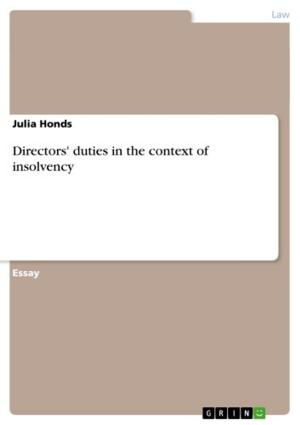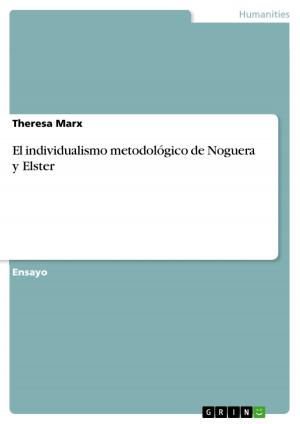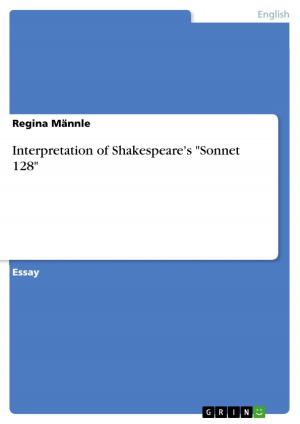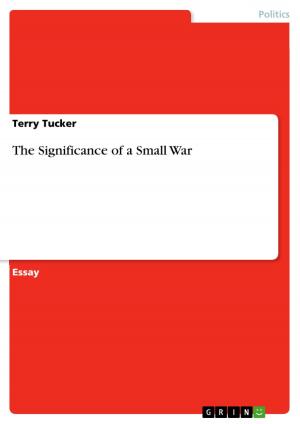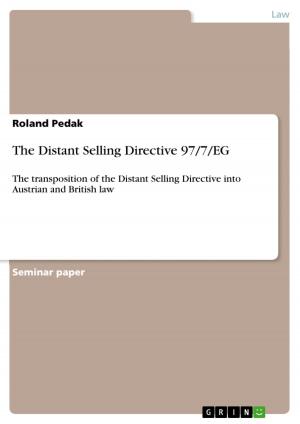Religion and Transcendence in James Joyce's 'Ulysses'
Fiction & Literature, Literary Theory & Criticism, British| Author: | Kai Hühne | ISBN: | 9783640199877 |
| Publisher: | GRIN Publishing | Publication: | October 29, 2008 |
| Imprint: | GRIN Publishing | Language: | English |
| Author: | Kai Hühne |
| ISBN: | 9783640199877 |
| Publisher: | GRIN Publishing |
| Publication: | October 29, 2008 |
| Imprint: | GRIN Publishing |
| Language: | English |
Seminar paper from the year 2008 in the subject English Language and Literature Studies - Literature, grade: 1,7, University of Regensburg (Institut für Anglistik und Amerikanistik ), course: Hauptseminar: James Joyce , 4 entries in the bibliography, language: English, abstract: The concept of transcendence is generally defined as the antonym of the notion of immanence. The material entities that are tangible and perceivable by the human senses are considered to form part of immanence, whereas transcendence is attributed to the divine and celestial spheres that elude the possibility to be grasped and handled in a way material objects can be dealt with. Owing to the fact that the two concepts of immanence and transcendence are considered to be poles apart, it is uncertain whether they are compatible with each other despite their antonymity. If the yawing gap between them should be reconcilable, this act of linking can only take place by means of a bridging relation of the complementary. An analogy to this would be the complementary relationship between allopathic and homeopathic remedies: allopathic pills are composed of chemical substances whose existence can easily be verified in a laboratory, whereas homeopathic tablets do not contain the physical substance of the respective herbs, metals or even venoms, but on the contrary the respective energetic correlate of them that eludes scientific methods of verification. Accepting the possibility of being cured by homeopathy is tantamount to embracing the existence of transcendence. By means of this comparison I seek to highlight that there must be mutual intermingling between the seemingly disparate antonyms of immanence and transcendence, owing to the fact that transcendence needs a material vehicle as a solid fundament in order to function and in order to be perceived by human beings.
Seminar paper from the year 2008 in the subject English Language and Literature Studies - Literature, grade: 1,7, University of Regensburg (Institut für Anglistik und Amerikanistik ), course: Hauptseminar: James Joyce , 4 entries in the bibliography, language: English, abstract: The concept of transcendence is generally defined as the antonym of the notion of immanence. The material entities that are tangible and perceivable by the human senses are considered to form part of immanence, whereas transcendence is attributed to the divine and celestial spheres that elude the possibility to be grasped and handled in a way material objects can be dealt with. Owing to the fact that the two concepts of immanence and transcendence are considered to be poles apart, it is uncertain whether they are compatible with each other despite their antonymity. If the yawing gap between them should be reconcilable, this act of linking can only take place by means of a bridging relation of the complementary. An analogy to this would be the complementary relationship between allopathic and homeopathic remedies: allopathic pills are composed of chemical substances whose existence can easily be verified in a laboratory, whereas homeopathic tablets do not contain the physical substance of the respective herbs, metals or even venoms, but on the contrary the respective energetic correlate of them that eludes scientific methods of verification. Accepting the possibility of being cured by homeopathy is tantamount to embracing the existence of transcendence. By means of this comparison I seek to highlight that there must be mutual intermingling between the seemingly disparate antonyms of immanence and transcendence, owing to the fact that transcendence needs a material vehicle as a solid fundament in order to function and in order to be perceived by human beings.


